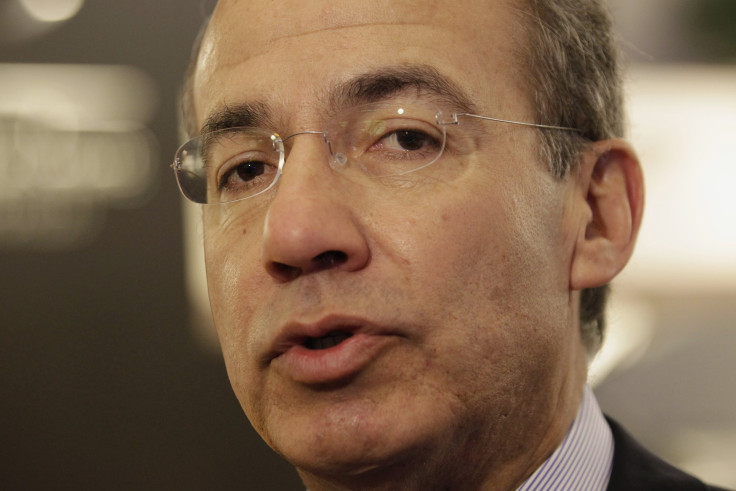
Felipe Calderón, the former president of Mexico and current fellow at Harvard's Kennedy School of Government, told Paraguayan newspaper ABC during a recent visit to Asunción that he didn't think that cartels would be defeated by the legalization of illicit drugs, saying that "the problem in Mexico is not just a matter of drugs", as "criminal organizations have reached such a level of sophistication that they are taking control of the institutions". Animal Politico notes that Calderón whose six years in office saw as many as 80,000 people murdered in Mexico, has said that he does not oppose the legalization of marijuana, and has even cosponsored a UN proposal suggesting that the possibility be explored.
In the interview, the former Mexican president said that responsibility for the wave of violence which swept the country after his administration sent in the military to establish control over parts of the north and northwest and began an aggressive campaign of arrests of kingpins was not attributable "to the actions of the government, fundamentally", but rather to the territorial expansion of the drug traffickers. Calderón told the paper that criminal groups had begun fighting, during his time in office, over turf in the interior of Mexico - where, he said, "some cartels became interested not just in selling drugs in the United States, but also in Mexico" - in what he described as a departure from a historic norm in which drugs were transported northward by routes along the Pacific and Gulf coasts.
Calderón was in Asunción to meet with Paraguayan President Horacio Cartes, the 56-year-old owner of some 25 companies in Paraguay, including manufacturers of drinks, meats and tobacco. Cartes's profile as it relates to drugs is strikingly different from that of Calderón - in 2000, drug enforcement officers in Paraguay intercepted a plane carrying cocaine and marijuana as it landed on one of Cartes' farms. He denied that it had anything to do with him. But in 2011, Wikileaks cables from the US embassy in Buenos Aires alleged that he was at the center of a drug and money-laundering network operating out of the frontier with Argentina and Brazil. Cartes has denied those allegations as well, pointing to assurances from the US embassy that the DEA and ATF are not conducting investigations into him.
RELATED: El Chapo Guzman Sons Show Off Cars, Weapons On Twitter After Arrest Of 'Mayo' Zambada At Border
© 2025 Latin Times. All rights reserved. Do not reproduce without permission.




